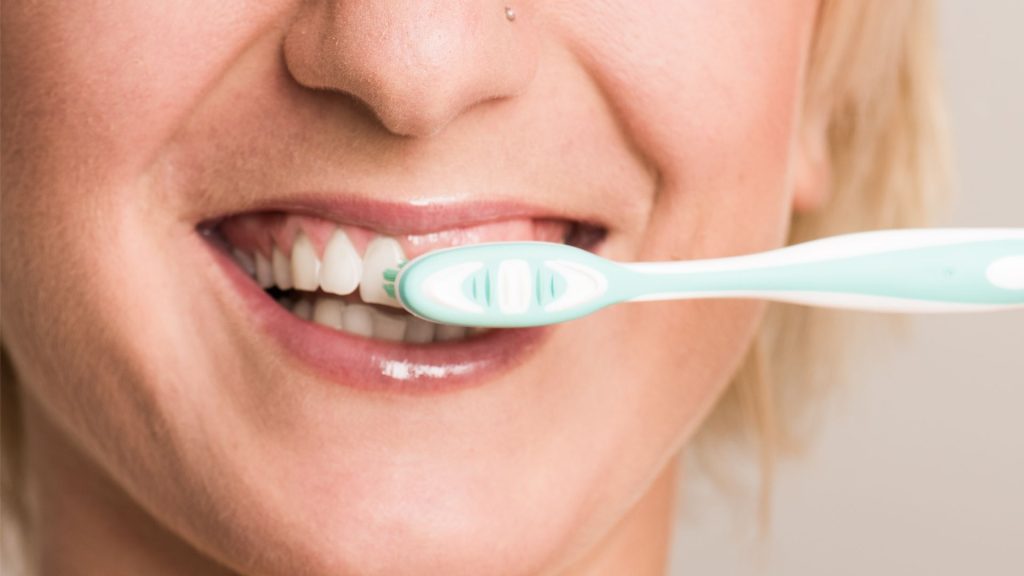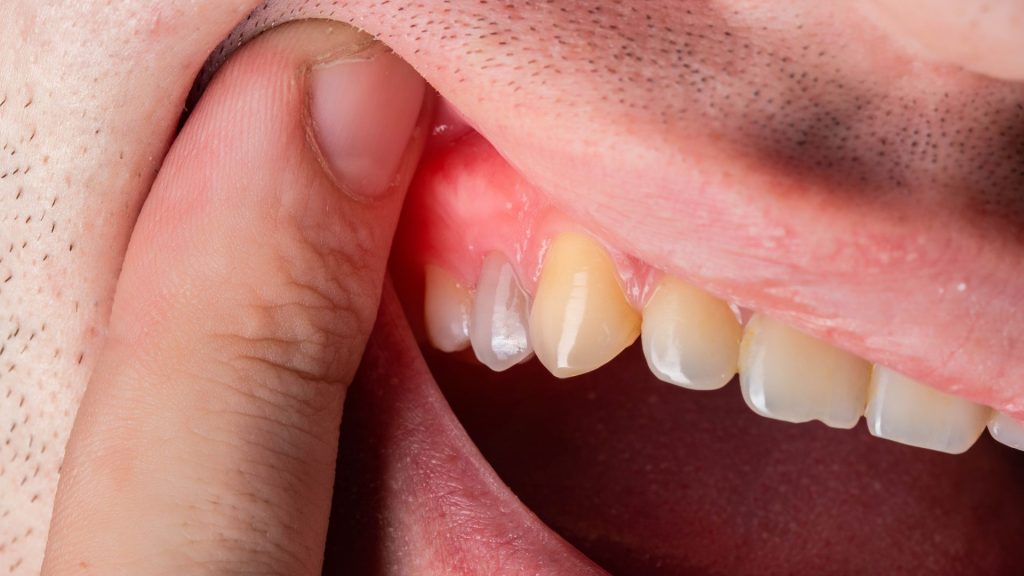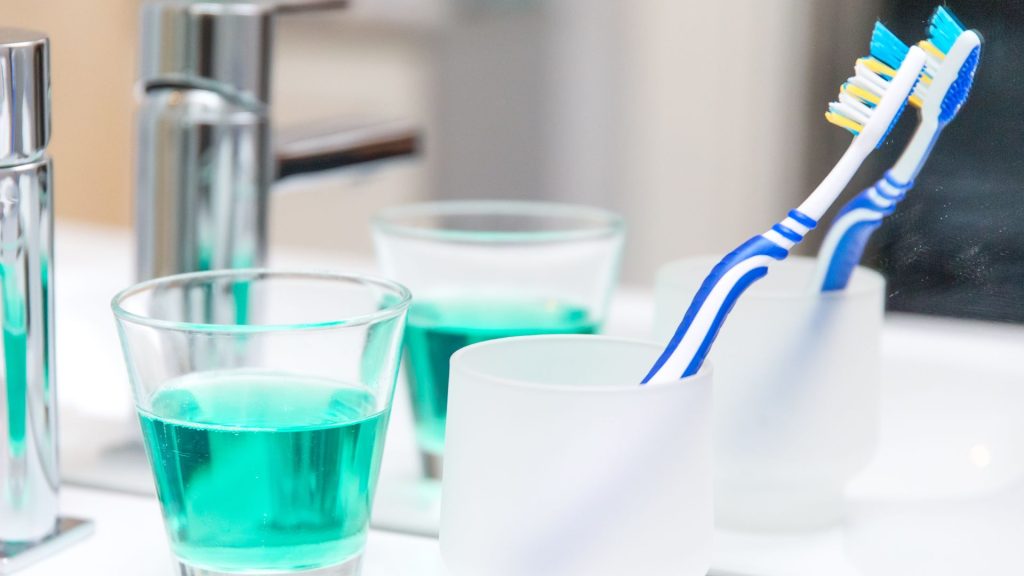What happens if you don’t brush your teeth? Without adequate care, teeth may produce germs and plaque, producing numerous uncomfortable and harmful issues. Brushing and flossing improperly might cause tooth issues.
We’ll discuss what occurs if we don’t wash our teeth. We know the consequences of poor dental hygiene: plaque and bacteria accumulation, tooth decay, gum infections, foul breath, and tooth loss. Prevention and dental care will help us keep our teeth healthy and our smiles bright.
Why Is Dental Hygiene Important?


For the simple reason that it is the greatest approach to preserving our teeth. Millions of germs and plaque build-up on our teeth every day. Without adequate treatment, these bacteria may cause dental decay, gum infections, poor breath, and even tooth loss:
- Avoid cavities: When you brush your teeth twice a day, you get rid of the plaque and bacteria that build up on the surface of your teeth. This prevents cavities and strengthens teeth.
- Prevents gingivitis: If you don’t brush, gingivitis-causing bacteria may accumulate. Untreated gum inflammation, swelling, discomfort, and tooth loss might result.
- Reduce the risk of gum disease: Common and ugly gum disease. Regular brushing and flossing eliminate plaque from between the teeth and lower gum disease risk.
- Prevents bad breath: Bad breath comes from dental plaque and germs. Plaque and bacteria are removed by brushing and mouthwash, reducing foul breath.
- Protects overall health: Research links oral and overall health. Gingivitis increases the risk of heart disease, diabetes, and breathing issues.
Simply said, excellent dental health may be easily and effectively maintained by consistent brushing and flossing. It’s beneficial for your teeth, your breath, and your general wellness.
What Happens If You Don’t Brush Your Teeth?


If you didn’t clean your teeth, what would happen? Healthline argues that, despite first impressions to the contrary, dental care is essential to one’s general well-being. The good news is that with consistent and thorough oral hygiene, most of these undesirable problems may be prevented.
This section discusses the negative implications of not brushing. We’ll examine plaque, bacteria, dental decay, gingivitis, bad breath, and tooth loss and their effects on oral and general health:
Plaque And Bacteria Form
Without frequent tooth brushing, plaque and germs will build up on the teeth’s surfaces. Plaque is a thin film that forms on teeth and gums due to the accumulation of bacteria, food debris, and other contaminants.
Moreover, plaque bacteria will continue to multiply, providing a favorable habitat for them. Dental plaque forms when plaque dries up and becomes greasy and white or light yellow in color. Regular brushing alone isn’t enough to get rid of plaque, and neither is visiting the dentist for a checkup and cleaning. Plaque contains millions of germs, including hazardous ones. Bacteria in plaque create acids and other toxic compounds. This acid causes tooth decay and cavities.
Thus, frequent brushing and good oral hygiene are essential to prevent plaque and bacteria buildup on teeth, maintain dental health, and avoid oral health issues.
Caries
When you don’t brush your teeth, plaque and germs build up on the surfaces of your teeth. When plaque comes into touch with meals, particularly sugars and starches, the bacteria there will keep on producing acids.
The bacteria’s acid dissolves the enamel, the teeth’s outermost protective coating. Acids remove minerals from tooth enamel over time, causing streaks and enamel degradation. Decaying enamel causes tooth decay. Tooth decay is a frequent health issue that may lead to discomfort, sensitivity, and even loss of teeth. Left untreated, dental decay may reach the tooth roots and cause infection, tooth loss, or the need for fillings.
Gum Inflammation


Without proper maintenance, plaque and germs may accumulate around the gum line and on the surface of the teeth.
Because of the bacteria in plaque, the gums become inflamed and bleed easily. There will be inflammation, redness, and sensitivity in the gums. When gingivitis worsens, the gums pull away from the teeth, forming deep pockets and reducing the stability of the bite. This destroys tooth tissue and may cause tooth loss.
In addition to swollen and sore gums, gingivitis may cause bleeding gums while brushing, foul breath, and a distinct taste and smell in the mouth.
Halitosis
When you don’t brush your teeth, plaque and germs accumulate on the tongue, teeth, and in the spaces between them. There will be no end to the waste products produced by the bacteria in plaque. These secretions stink and cause bad breath. Bacteria break down waste and release foul-smelling chemicals, causing mouth odor.
Additionally, gingivitis, tooth decay, and other oral issues may be brought on by plaque and germs. These issues cause sour breath.
How Long Does It Take To Develop Dental Issues If You Don’t Brush?
Problems might arise after a given amount of time if you don’t clean your teeth correctly by brushing and flossing. However, there are several variables that might affect how long it takes for difficulties to show up:
- One day: Within 48 hours, plaque may start demineralizing the dentin, the layer underneath the enamel that protects the pulp.
- One week: Not brushing your teeth may lead to tooth decay, foul breath, and other unpleasant consequences.
- One year: A healthy immune system helps battle tooth decay triggers. However, dental plaque that builds up over a year may cause tooth decay, gum disease, and tooth loss.
How To Prevent And Maintain Dental Health?


Taking preventative measures and caring for your teeth is crucial to your health. By taking the right measures and caring for your teeth, you can lower your chance of dental problems like cavities, gum infections, bad breath, and tooth loss. Here are some of the fundamentals of dental hygiene:
- Brush properly: Brush your teeth twice a day for 2 minutes. Use gentle bristles and fluoride toothpaste. Brush your teeth front, back, and inclined.
- Flossing: Floss your teeth and the areas in between them every day. This aids in the removal of plaque and leftover food that toothbrushes miss.
- Use mouthwash: Mouth germs may be eliminated and plaque can be removed by gargling with an alcohol-free mouthwash. After brushing and flossing, rinse your mouth thoroughly with mouthwash.
- Limit sugar and starchy foods: Bacteria feed on sugar and starch, causing plaque and acid. Limiting these meals reduces tooth decay and other issues.
- Avoid over-handling: To protect enamel, don’t chew on ballpoint pens or bottles. Moreover, avoid biting hard items or opening bottles with your teeth.
- Visit the dentist regularly: You should have regular dental checkups and cleanings twice a year at the very least. Dentists are trained to see the early warning signs of tooth issues and can treat them before they worsen.
- Eat a healthy diet: Add protein, calcium, fiber, and veggies to your diet. At the same time, cut down on your consumption of sugary beverages and meals made with refined flour.
Conclusion
It’s simple to understand how ignoring our teeth might result in a slew of negative repercussions. Fortunately, most of these problems are avoidable with rigorous at-home dental care and semiannual dental appointments. Maintaining excellent dental health and preventing complications requires regular dental check-ups at Spring Orchid Dental Clinic. This clinic not only provides high-quality dental care but also makes its patients feel comfortable and at ease.
Put your family’s oral health first by scheduling regular appointments at Spring Orchid Dental. You can trust that your teeth are receiving the greatest care possible thanks to the guidance and expertise of a team of dentists.
FAQs
How Long Can You Skip Brushing?
The ADA advises twice-daily brushing. However, your dental hygiene, nutrition, and oral health might affect how long you can go without brushing.
Typically, within 24 to 48 hours of not brushing your teeth, plaque begins to form on the tooth surfaces. Bacteria and food particles form plaque on teeth. Plaque hardens into tartar, which is harder to remove and may cause gum disease.
Plaque and tartar development may cause cavities, gum irritation, foul breath, and tooth loss without frequent brushing. These difficulties increase with time between brushings.
Will It Hurt if You Don’t Wash Your Teeth?
Yes, indeed. Poor dental hygiene may cause toothache and sensitivity.
However, brushing does not cure all toothaches. However, maintaining a state of pain-free dental hygiene requires regular brushing, flossing, and exams. Consistent toothache necessitates dental examinations.
Even If You Don’t Eat, Should You Still Wash Your Teeth?
Certainly, even if you haven’t eaten anything yet. Brushing does more than only remove plaque from your teeth. Clean your teeth after any meal to get rid of bacteria and residual food. In addition to brushing, it is important to floss and see the dentist for regular checkups.





